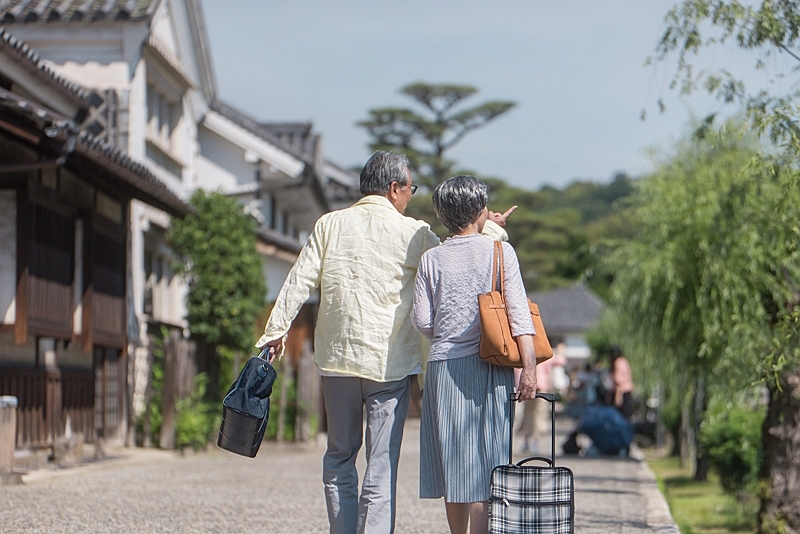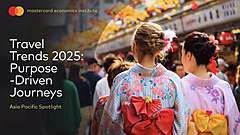
Japan Tourism Agency announced the survey result on Japanese travel trend in this year’s Golden Week with up to 10 consecutive holidays (April 27 to May 6). The average acquired holidays were 7.0 days, just 0.8 more days than a year ago.
The ratios of Japanese people who traveled during the period were beyond 30% in all of the age segments, and the average was 35%. The average travel frequency during the period was 1.74 times a person (including day trip).
With regard to willingness to travel, people who were more willing to travel this year than before accounted for 16.4% on average, and the ratios were beyond 20% in 20s and 30s. On the contrary, the ratio of people who were less willing to travel this year than before reached 18.6%, particularly high in 60s and 70s.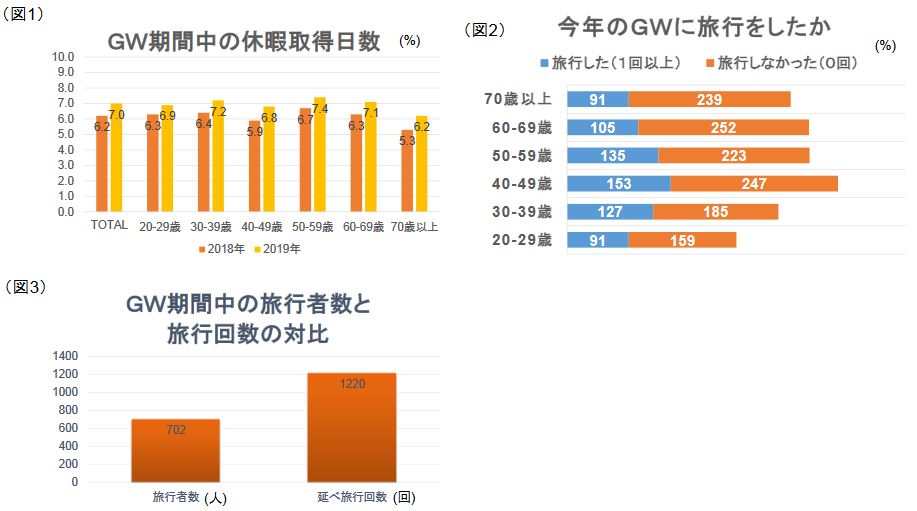
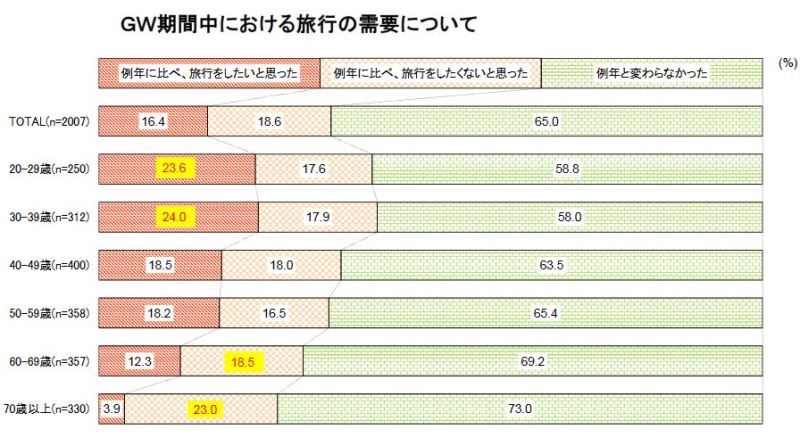
The most-answered reason for not traveling was ‘expecting an overcrowded situation (45.4%),’ especially high in 70s (54%) and 30% to 40% even in other age segments. Other major reasons were ‘for an economy reason (25.5%)’ and ‘no available time to travel (22.6%).’
Regarding travel destinations, the ratio of people who traveled to different areas from their resident areas was 51.7%, lower than 65.5%. Long-haul destinations were preferred during this year’s Golden Week with up to 10 consecutive holidays, however the survey finds that most people were hesitated to travel to far destinations.
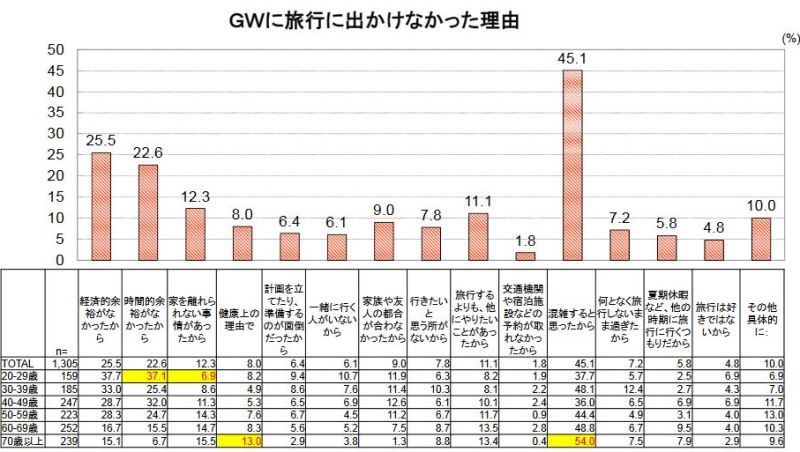
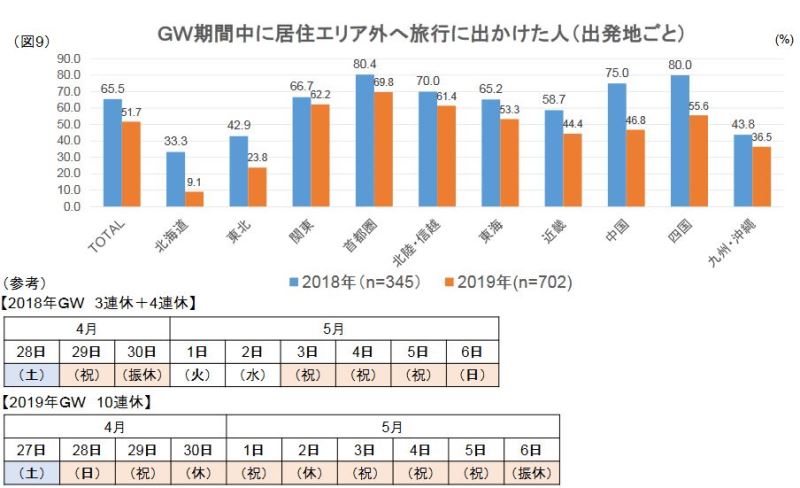
Regarding booking channels, the most-selected channel was Japanese OTAs with the ratio of 16%, higher than 8.1% through real travel agents including bookings over phones or online or 12.4% through direct bookings on accommodation or transportation websites.
The survey was conducted online to 20 years old or older males and females in the period between May 10 and 13 2019. 2,007 samples were collected.

